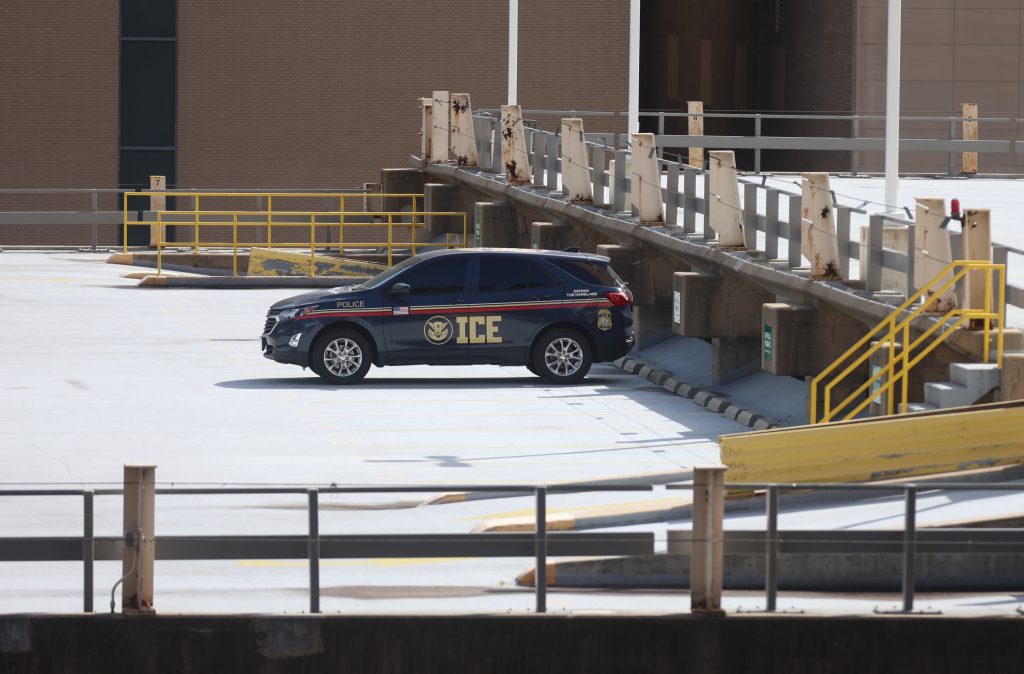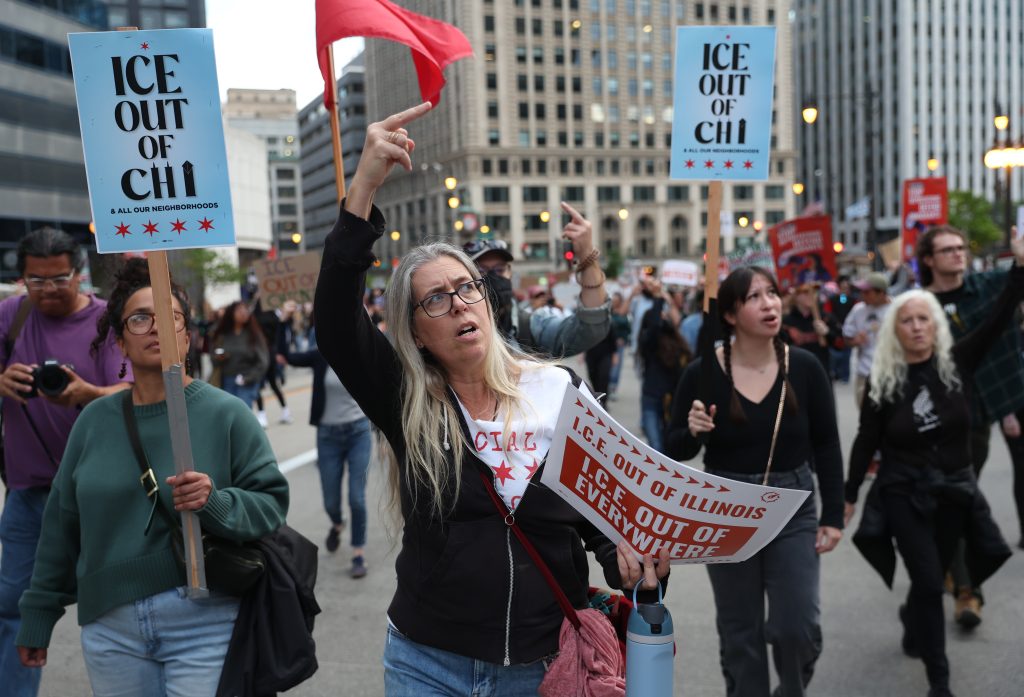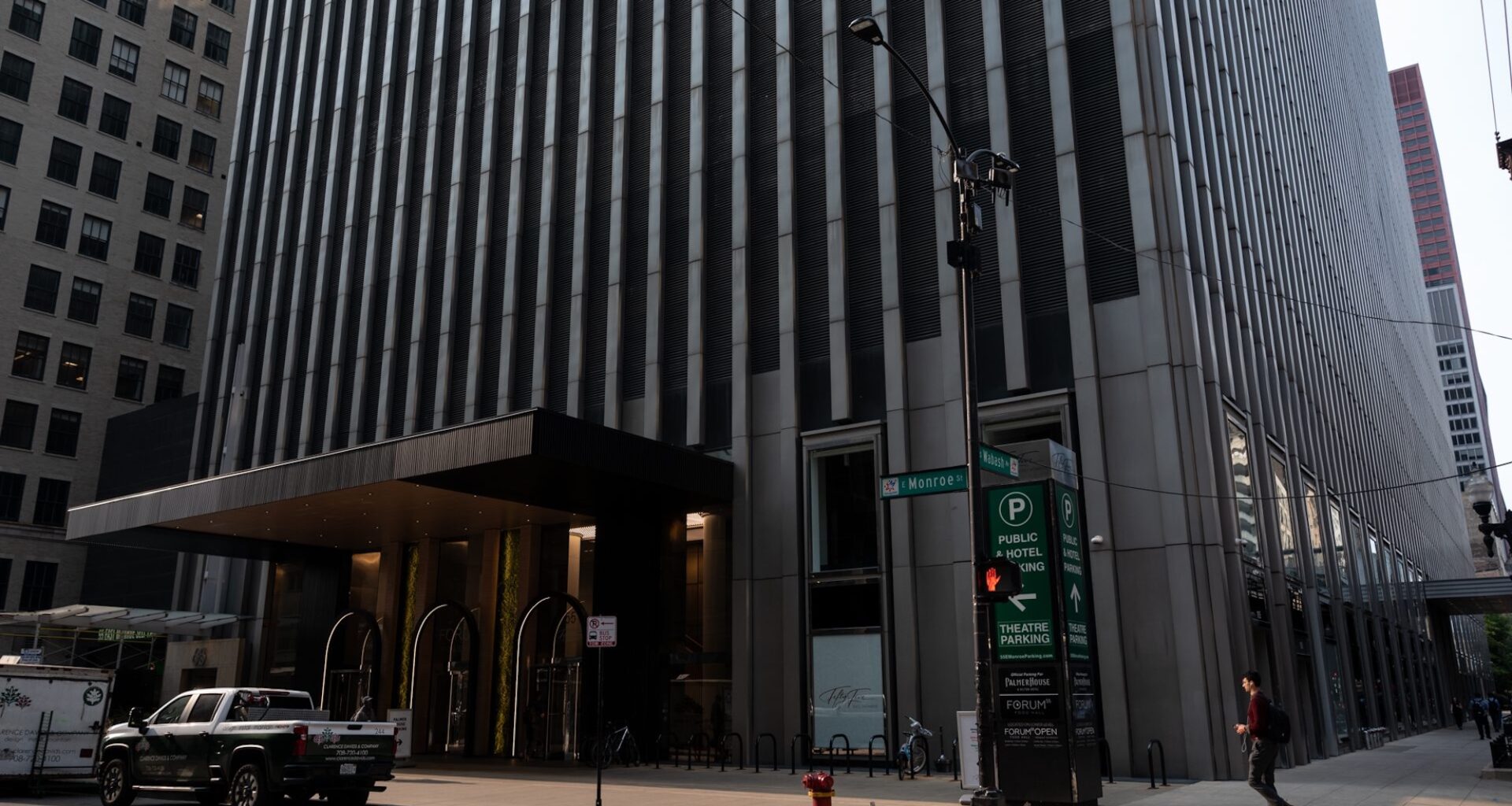THE LOOP — An Ecuadorian asylum seeker who was detained by federal agents in Chicago after a routine June immigration hearing and “whisked away” to a Louisiana prison is now waging a desperate legal battle to avoid being deported to Honduras.
A lawsuit filed this month on behalf of Ivan Perez Canola, 40, offers the most detailed view yet of a federal strategy to arrest immigrants who show up for court hearings only to be sent to other states where judges are more likely to side with federal authorities seeking their deportation.
“The act of moving [Perez Canola] to a southern-based ICE holding facility is part of a broad administration policy of venue shopping for the harshest immigration judges,” John Heiderscheidt, a Chicago-based attorney for Perez Canola, wrote in documents as part of a lawsuit against the U.S. Department of Homeland, Department of Justice and Immigration and Customs Enforcement and their leaders.
According to a federal civil complaint filed this month in Chicago, Heiderscheidt said a Chicago immigration judge who witnessed Perez Canola’s arrest outside an Executive Office for Immigration Review courtroom at 55 E. Monroe St. later wrote that ICE “obviously violated the constitutional rights to access and prepare” for court with his attorney.
Perez Canola has no known criminal record and had “followed the process” to seek asylum, Heiderscheidt said.
Heiderscheidt told Block Club this week he can now only reach Perez Canola about his case through irregular, pre-scheduled calls on recorded prison lines. His lawsuit filed on Perez Canola’s behalf argues that has made “extended, purposeful communications” between the two “virtually impossible.”
Perez Canola’s June arrest came less than two weeks after ICE agents clashed with protesters while detaining at least 10 people who were told to check in for a federal immigration monitoring program run out of a South Loop office building at 2245 S. Michigan Ave.
ICE agents have also arrested people this year at Chicago’s federal courthouses after their immigration cases have been dismissed, Borderless reported. The arrests are part of an aggressive escalation of immigration enforcement to expand President Donald Trump’s sweep of undocumented immigrants
Heiderscheidt, in court filings, described Perez Canola’s case as being emblematic of a “broader scheme” to deny due process to millions of immigrants by “’flooding the zone’ with an array of enforcement actions that range from legal but pernicious, to outright and flagrant violations of constitutional due process.”
Heiderscheidt’s complaint cited one social media post from President Donald Trump in which the president wrote, “We cannot give everyone a trial, because to do so would take, without exaggeration, 200 years.” And the “flooding the zone” language comes from Tom Homan, Trump’s “border czar.”
According to court documents, Judge Jody Barilla, a Chicago immigration judge, wrote in a court order that Perez Canola had “expressed a credible fear of returning to Ecuador” while seeking asylum but that his detention has since “prevented him from effectively communicating with his attorney, thereby interfering with his right to due process and his right to counsel.”
But that didn’t stop Perez Canola from being ordered removed from the United States on Thursday in a Louisiana courtroom, according to public records. He remains in ICE custody at a nearby prison. Federal officials have requested to send him to Honduras.
Perez Canola entered the United States through a port of entry at the Texas border in 2023 and was on a parole status to stay in the country granted by the Biden administration, according to court documents.
Perez Canola, who sold ice cream in Ecuador, claimed his family received death threats from gang members when he refused sell drugs at schools, according to an asylum application filed last year.
ICE spokespeople did not return a request for comment about Perez Canola’s case.
But in a response to the lawsuit, Justice Department attorneys wrote that Perez Canola’s parole status had ended about a week before his arrest by ICE agents.
“Importantly, though, parole is not an admission to the United States,” the attorneys wrote.
 An Immigration and Customs Enforcement vehicle sits in the parking garage of the Metropolitan Correctional Center in the Chicago Loop on Saturday, Sept. 6, 2025 ahead of anticipated immigration raids across the Chicagoland area. Credit: Talia Sprague/Block Club Chicago
An Immigration and Customs Enforcement vehicle sits in the parking garage of the Metropolitan Correctional Center in the Chicago Loop on Saturday, Sept. 6, 2025 ahead of anticipated immigration raids across the Chicagoland area. Credit: Talia Sprague/Block Club Chicago
Last week, two people were arrested by ICE at Cook County’s domestic violence court. The federal agency has yet to release complete data on who has been arrested in Chicago, for what and where they’ve been sent.
The Trump administration has fired at least two Chicago immigration judges, including the former assistant chief overseeing the courthouse, and over 100 immigration judges across the country.
A class-action lawsuit filed by the National Immigrant Justice Center alleges federal authorities have arrested “hundreds and possibly thousands of people” at city courthouses for “expedited removal proceedings” elsewhere, creating a “palpable fear” about applying for legal status.
“People who attend their hearings to seek permission to remain in this country and comply with U.S. immigration law are being rounded up and abruptly ripped from their families, homes and livelihoods,” Keren Zwick, director of litigation at the justice center, said in a July statement announcing the lawsuit.
 Protesters flip off Trump Tower during a protest against immigration raids in Chicago on Saturday, Sept. 6, 2025. Credit: Talia Sprague/Block Club Chicago
Protesters flip off Trump Tower during a protest against immigration raids in Chicago on Saturday, Sept. 6, 2025. Credit: Talia Sprague/Block Club Chicago
On Monday, ICE officials announced Operation Midway Blitz, an immigration enforcement surge focused on Chicago. ICE vehicles have recently been spotted outside the Cook County Criminal Courthouse, 2650 S. California Ave.
Perez Canola’s lawsuit includes allegations of “ongoing unlawful obstruction of the right to counsel,” unlawful arrest, unlawful incarceration, unlawful obstruction of due process rights. He is seeking a jury trial.
A temporary restraining order filed by Heiderscheidt requesting Perez Canola return to Chicago for court proceedings was denied earlier this week.
“For people caught in the enforcement vortex, you’re going to be facing an environment of maximum enforcement,” Heiderscheidt said. “That’s going to be hard to deal with.”
Listen to the Block Club Chicago podcast:
